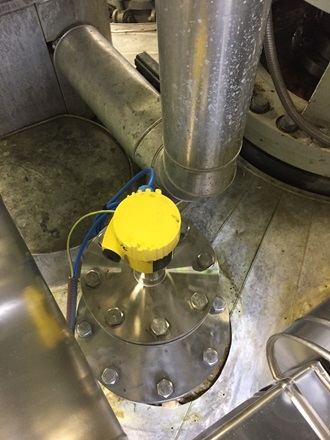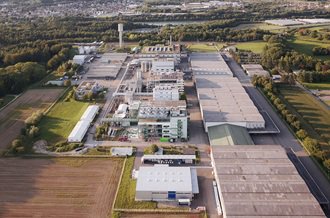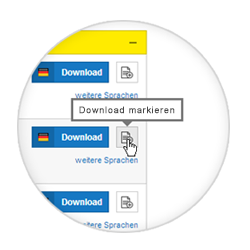Level measurement in the reactor: ceramic and metallic VEGA measuring cells easily handle high temperatures and aggressive substances |
Meeting the highest safety standards in all process steps is an indispensable requirement in the chemical industry. There is a small but important building block of BASF’s highly effi cient, global safety management at its Swiss site in Kaisten. It’s in the form of a guarantee that all processes are completely free of silicone oil. This is why traditional differential pressure transmitters can reach their limits when monitoring the levels during the production of additives for paints and plastics. They work by means of capillary lines filled with silicone oil, which – in the unlikely event of an accident – could come into contact with the medium. In contrast, VEGA electronic differential pressure measuring systems have provide perfect safety – with the innovative combination of ceramic and metallic measuring cells.
Silicone oil-free measurement
Strong demand for additives
One system for two extremes
Electronic differential pressure with VEGABAR is silicone oil-free, without capillary lines and requires less installation effort.
The highly robust ceramic CERTEC® measuring cell in the BASF vacuum reactor was ideal for the perfectly flush application in hot, aggressive solvents in the lower reactor section. In the upper reactor area, however, completely different conditions prevailed: Here, the extreme steam caused condensation in the measuring cell and led to inaccuracies. Initially, the obvious solution was to use the differential pressure system based on metallic METEC® measuring cells instead of ceramic measuring cells. Condensate and humidity no longer had any negative influence. “The upper measured value remained acceptable and highly accurate in all situations,” recalls Markus Stoll. However, the high temperature of the solvent in the lower reactor area repeatedly caused measured value drifts.
Dream team for heat and condensate
Plastic additives, including so-called large-volume antioxidants and many customer-specifi c mixtures: They are produced about 40 km east of Basel, where BASF’s Kaisten production site is located in the Swiss canton of Aargau.
It took expertise, a willingness to experiment and above all, hand-in-hand work between BASF’s Measuring and Control Technology department and Jürgen Feser, the Key Account Manager at VEGA, until everything was running smoothly. The surprising solution was to use an innovative electronic differential pressure measurement system – with a combination of a ceramic and a metallic measuring cell. Both pressure transmitters record their respective values separately and calculate the differential in the master sensor. This is made possible by structurally identical instrument electronics behind the two very different measuring cells. They work perfectly, even in a mixed team. “For our application, this combination is a real dream team,” says Feser with satisfaction. “As far as I know, only VEGA offers this combination capability.”
We need your consent
This content is provided by an external provider. If you activate the content, personal data may be processed and cookies set.
Industries
Related products
Export this article
Download as PDFShare this article
Comments ({{comments.length}})
{{getCommentAuthor(comment, "Anonymous")}} {{comment.timestamp | date : "dd.MM.yyyy HH:mm" }}
{{comment.comment}}




